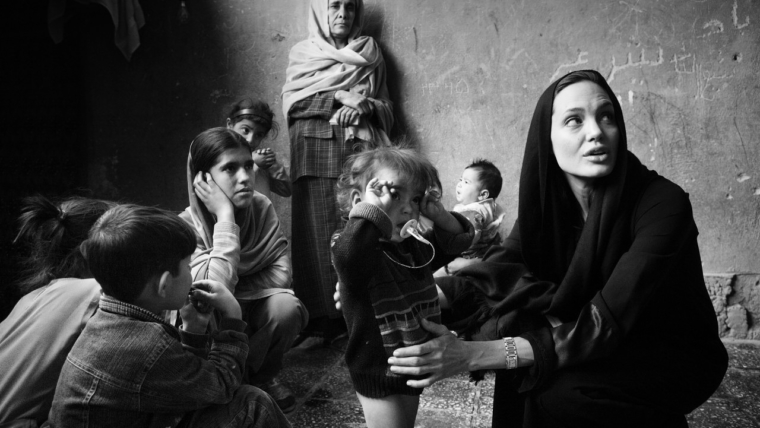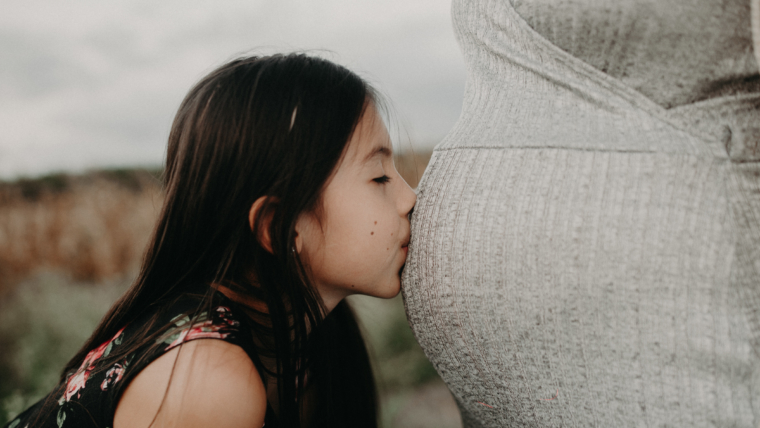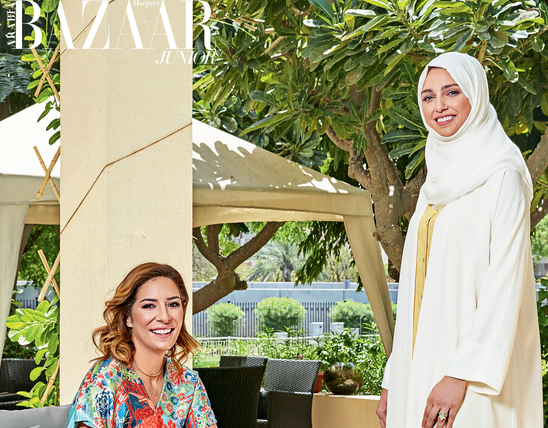
5 Instagram Accounts to Follow for Revolutionary Black Parenting
From living off of the land to fighting capitalism, these Black parents are starting the revolution—and they’re posting about it.
By Fatima-Ayan Malika Hirsi
Instagram is a portal offering an innumerable amount of advice on many mundane tasks. As exhausting as wading through its noise can be, it’s refreshing when you stumble onto real treasures that can affect everyday life. I’m talking about revolution—specifically, revolutionary Black parenting.
June Jordan said, “Children are the ways that the world begins again and again.” As toxic systems command more and more political power, a growing number of parents are doing away with entrenched societal expectations of what it means to raise children. They embrace visions of care that speak to the world we all deserve instead of the one that emphasizes “power over” instead of “power with.” They are the Black people moving from cities where they rent to farmland that they own, having open conversations about race, and moving through parenthood strong in their resolve to do things a little differently.
Many of the ways these parents engage with the sacred work of child rearing are considered unconventional—but being the subject of a few raised eyebrows is nothing when you’re raising children who will be equipped to build new worlds.
When public school systems create vastly different educational experiences based on zip code and disproportionately punish Black students more often and more harshly than white students, what’s more revolutionary than homeschooling your children and being intentional about teaching them emotional intelligence? In the age of coronavirus, it’s not uncommon to see families sharing how they cope with a pandemic by being at home.
Baba Christopher, @thefallbackup, is unique in that instead of sharing coping strategies for enduring a plague of disease, he offers a rejection of the plague of capitalism and ways it forces many to be severed from their families. “When you have love in your home it transforms into a sacred space. We homeschool, work from home, and heal together at home, so our home is definitely our sacred space,” he says.
In “My Mystical Mom and Dad,” a podcast in collaboration with Christopher’s partner, @womanofthewomb, the pair details how their way of life is based on a freedom of time and thought. From healthy breakfasts, to exercise, to enriching the mind—his Instagram posts show the role of routines in daily life. “It’s amazing seeing children want to meditate and enjoying mastering their own inner peace and harmony,” says Christopher.
One perk of homeschooling, displayed in his shares, is that parents can educate their children on topics beyond the traditional scripts learned in school. Online, he explains how his family’s rendition of homeschooling involves lessons on controlling moods and body functions by learning about conscious breathing. “This is why I love homeschooling and being an off-grid family, we get to enlighten our children and not just teach them,” he says.
“Revolution is based on land. Land is the basis of all independence. Land is the basis of freedom, justice, and equality. The white man knows what a revolution is.” Malcolm X’s words are clear when we consider that as of twenty years ago, 97% of agricultural land was owned by white people. In a country where Black families are more than twice as food insecure as their white counterparts and in a world where a delicate supply chain can deeply impact dominant food systems, starting a farm and teaching your children how to harvest their dinner is a revolutionary act.
@aina_company details how Asia and Adonis left Detroit to begin a life in Hawaii growing their own food. Aloha ʻĀina translates to “love of the land.” Their love, which spans over fourteen years, inspired the names of both their daughter and their business. Asia and Adonis credit their mentor, Lindy Lou, with teaching them a key piece of wisdom about growing food is that you can get out what you put in.
This can also be true about parenting. Their Instagram shows how being in deep relationship with the Earth deepens one’s relationship with the self. Six-year-old Aina does everything from helping to harvest greens to working soil. “I have a great farm, and I’m looking fabulous today!” she says. “I have my own thoughts, so you can’t really take anything away from me.” When she takes hold of the camera, Black joy and confidence is on full display.
Melania Luisa Marte is a writer based in the Dominican Republic whose work speaks truth to oppressive power systems. Marte raises her sons in a way that helps them be softer despite how the world may try to harden them.
“I find that when we do push a very capitalistic, cis, hetro, patriarchal agendal—this is when the babies start to become more violent, and they start to feel diminished, and they start to feel less human, and overall the love kind of gets lost. For me, revolutionary Black love means prioritizing love above all else, and expressing that through daily actions,” says Marte.
She says that she is intentional about everything from the food she eats to the conversation she has and music she listens to, acts she says prioritize revolutionary Black love.
One of the ways Marte divests from toxic systems is by having honest conversations—both with her children, and with those who orbit their lives. Part of her revolutionary parenting involves a concerted effort to heal anti-Blackness in her family, as well as speaking to her children about poignant issues to better equip them to navigate the world.
“It’s having conversations with kids at a young age about fatphobia and about homophobia and about how to treat everyone with respect and compassion. I didn’t really think I would be having these conversations with a kid at five, but what you realize is that kids are being indoctrinated and are internalizing a lot of these systems that we live in from the time that they’re born,” she says. “If you’re not having these conversations at five, you’re going to end up dealing with the repercussions at 10 or 15. Or, by the time you do have the conversations, they’ve already developed eating disorders or anxiety, and are already battling all of these systems that make them feel like they’re not good enough. “
Another way Marte helps her children survive this world is by honoring love as God. “That means nurturing, that means protecting, that means really having gratitude for air and water and the trees and the birds and the bees,” she says. “That means being a parent who has more patience, who is kinder, who is softer, who knows when to protect and when to fall back and let the babies learn and grow and explore all of who they are.
Mikaela de la Myco is an entheogen and womb wellness educator. Entheogens are substances derived from the natural environment that produce altered states of consciousness for spiritual purposes. Spirituality is at the root of how de la Myco raises her 2-year-old son, Marten. She says her spirituality helps put her in a corporeal reality with him in daily life, interacting more with the natural world.
“Let’s go spend time in nature, let’s talk to plants, let’s sing songs together, let’s understand the world that we live on, because we’re not here to escape planet Earth.” she says. ” I’m not praying for a better afterlife. I’m praying for a good life here today.”
A good life today means helping to nurture her son’s own power. “Encouraging him to express himself is part of letting him know that he’s powerful,” de la Myco says. “I’m not here to tell him how to feel, I’m here to respond to him instead of to direct how he’s supposed to be.”
This self-determination expresses itself in many ways. On Instagram, followers see a toddler who knows how to sweep, wash dishes, and help with the laundry. “I think revolutionary for me is welcoming my son to know how powerful he is and letting him also understand through storytelling that our ancestors did incredible things, and he does incredible things, and he feels incredible because our ancestors had to feel incredibly.”
Much of what de la Myco describes might be incredible. She advocates for elimination communication, a method of responding to cues to help babies from as young as birth address waste. She also advocates for extended breastfeeding—not just because of the health benefits for mother and child, but also because Marten actively chooses to maintain the breastfeeding relationship. “I think that it lets him know that he can have a relationship with my body, with the body of the earth, into his later years, as opposed to having that cut off,” she says. De la Myco shares this relationship online. “Breastfeeding can be a conversation and a way to build and respect boundaries,” she says on Instagram.
Erika Harper is a mother who has involved her children in her yoga practice from the time they were inside the womb to after they tumbled out of it. She knew her yoga practice would continue at the start of her pregnancy. Honoring her body during pregnancy was a response to the enslavement her African ancestors faced.
“During chattel slavery there was no rest or leave. Women had to do things and be very physical while they were pregnant. That thought made me think maybe pregnancy in general is not as sensitive as a time as it has been posed to us,” she says. “I purposely did certain yoga poses because I did want people to see that this is what your body was made to do. Your body is made to keep that baby safe.”
As a therapist, Harper knows that safety extends beyond physical realms. She wants her children to feel psychologically safe, as well. She is the author of Fearless Gumba and Sweet Pea Snorty Magee: Shades of Black, which challenges colorism by showing characters—modeled after her children—the full range of their family tree.
“I want my kids to understand that they are different, that their skin is beautiful, and any other Black person whatever shade they are—their skin is also beautiful,” she says. “Somewhere down your line is someone with skin that color, and to denigrate one skin tone is to denigrate the people in your family. I want people to understand that you have to love it all.”
Even if her yoga practice offers her peace, Harper says being a Black yogi isn’t always easy. “Sometimes you’re freaking angry because a white supremacist just killed all these people in a supermarket who were just minding their business—and that could have been anywhere. How do you reconcile that on the mat with how yoga has been packaged in the West? It’s difficult,” she says. “You have to call upon all of the lessons, the calming parts, the meditation, so you can then redirect that energy so that it’s not destructive.”
One important piece of Harper’s practice is that it preserves her own energy by nourishing individuality. “You almost have to see that thing that you love as another child that you have to nourish and raise just the way you do your children,” she says. “That means you may have to wake up a little bit earlier—but whatever it takes, fight for that and do something for yourself. It’s not an act of selfishness to do that. Take the time, you need it. Your kids need you to have it.”
Filling your own cup is a theme with these revolutionary Black parents. They aren’t necessarily parenting accounts. Each of them shares what makes them unique as individuals, and show how children can fit seamlessly into the parts of life we’re most passionate about. They are building the world they want to live in through their children.







